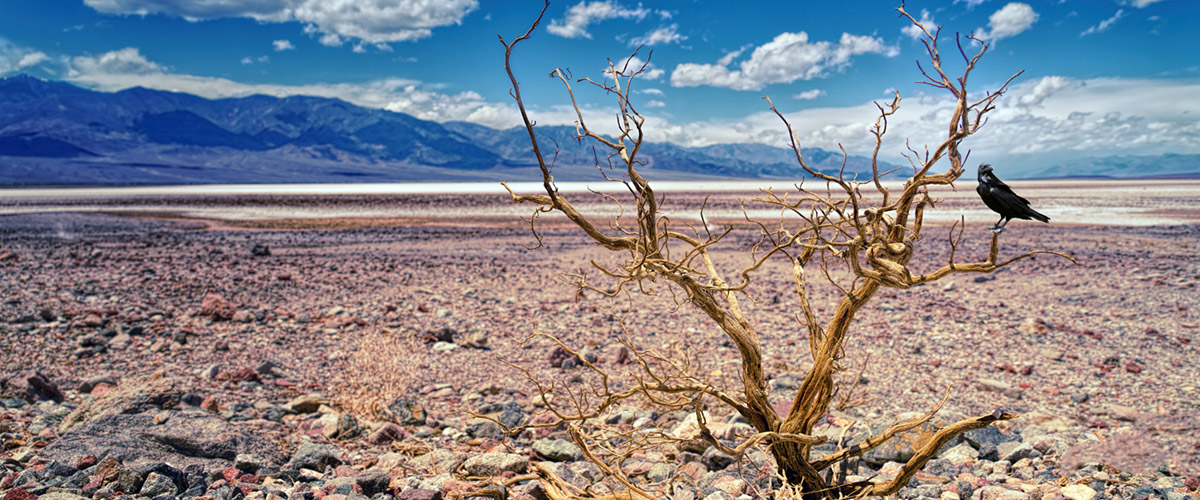
Drought refers to a phenomenon in which dry conditions and lack of precipitation-whether rain, snow or sleet-occur in certain areas over a period of time, resulting in water scarcity.
The amount of precipitation varies among different regions and times of the year.
Although droughts can occur naturally, human activities, including water use and management, as well as the effects of climate change such as more intense heat waves and an extended fire season, have worsened drought conditions, allowing them to occur more frequently and for longer periods of time.
Drought can be difficult to define and take many forms. To help monitor drought conditions, climate experts classify drought into several types:
- Meteorological drought occurs when dry weather patterns dominate an area.
- Hydrological drought refers to when low water supply becomes evident in the water system
- Agricultural drought occurs when crops are affected by drought
- Socioeconomic drought occurs when the supply and demand of various goods are affected by drought.
Ecological drought occurs when natural ecosystems are affected by drought.
The end result is that for supply for industrial and civilian use there is currently a decline in both the volume of water available and its quality.
ENSURING WATER QUALITY
The aquifers, not being adequately replenished during the year by atmospheric precipitation, have a much lower water level and a significant rise in the saline level.
One is therefore forced to dig deeper wells and the water available is often brackish and unsuitable for human, animal or irrigation consumption.
Idroconsult has several technologies available that allow well water to be partially or fully desalinated, enabling it to be obtained at the appropriate level for the type of use.
Reverse osmosis technology, widely adopted in both drinking water contexts and industrial and agricultural activities, is the main one possible to address and solve groundwater problems.
A peculiarity of our reverse osmosis plants is that they can make the composition of the water itself constant, allowing an unaltered level of quality to be maintained even for critical uses, such as floriculture or the food industry.
The concentration of salts in groundwater also generates solubility variation effects of some of them, consequently generating undesirable effects, especially in hydraulic and mechanical circuits.
Particularly noticeable is the variation in solubility of iron, which causes soiling and clogging, especially in systems that make use of nozzles, including those irrigated with the drip system.
Variation in the concentration of calcium and magnesium carbonates, which are responsible for lime scale, is another cause of clogging.
Technologically advanced farms are moving toward drip irrigation systems that can operate without human intervention. The highly targeted nature of drip irrigation ensures that each plant receives the right amount of water delivered directly to its roots.
Unfortunately, the drip system is best suited to optimizing water for irrigation use and is one of the most sensitive to water quality.
Idroconsult has available deferrization and demanganization systems to solve this issue, which is of particular relevance in high value-added products (greenhouse cultivation, or quality).
In the case, on the other hand, of water supply from surface streams or rivers, violent and extreme and confined atmospheric precipitation generates a level of turbidity in the water that can remain for days, due to suspended silt and clay lifted from the bottom by turbulent motions.
In these cases, there are various filtration technologies, placed in sequence, the latest of which is ultrafiltration, that allow clarification of the supply water, ensuring consistency of result.
RECOVERING WATER
Water shortages dictate that as far as possible, at least partial water reuse should be considered.
The above is due both to issues of the quality of the groundwater itself and to possible restrictions or taxes that may be imposed by local authorities at certain times of the year.
There are various technologies available for water reuse, some widely established over decades, especially in certain industries.
Although recovery is a goal of any business, the level of success depends on both the technological approach and the cost-benefit balance.
Idroconsult has many years of experience in water recovery, successfully installing recycling systems especially in the car wash industry, which has a systematic and significant use of water itself.
Nevertheless, the problem can be solved in various other production areas, depending on specific needs.
In general, each sector requires a customized assessment.
Idroconsult makes its know-how on the subject available to meet the Client's needs.
The best solution to your problem
Contact us for a personalized offer
 IT
IT

